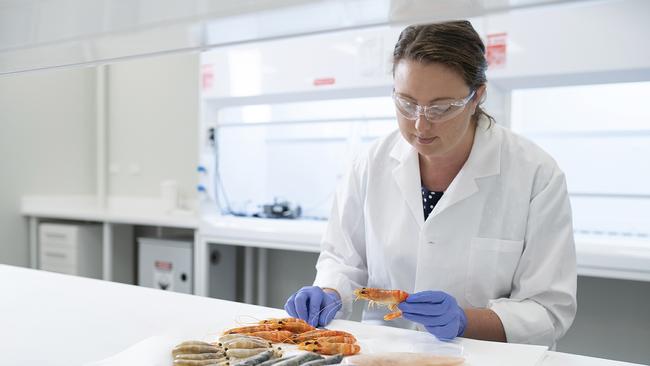No raw prawn for Australian customers, audit finds
The Australian prawn industry is using covert forensic testing to ensure seafood is correctly labelled.

Australia’s wild caught prawn industry is conducting a nationwide crackdown on dodgy labelling, with forensic testing in seafood shops and supermarkets.
In a win for consumers, the most recent blind audit of prawn labelling in retailers from every state has found 100 per cent compliance when it came to accurately labelling whether the prawns were from Australia or overseas.
Nearly all retailers (95 per cent) were found to be correctly labelling whether the prawns they sold were wild caught or farmed.
The testing has been carried out since 2019, but the latest round, which analysed 253 products, has delivered the most promising results for the industry, which wants to build trust among consumers to ensure they are confident that they are getting what they pay for.
The testing was commissioned by the Australian Council of Prawn Fisheries, with the backing of Curtin University and the Fisheries Research and Development Corporation, and carried out by Perth-based forensic company Source Certain.
Australian Council of Prawn Fisheries chief executive Rachel King said the testing was commissioned to ensure the integrity of the supply chain and support the value and premium market position of Australian prawns.
‘The provenance of prawns is being respected through the supply chain and that is great news,” she said.
Ms King said the project was initiated by the industry collectively in 2016, with the first testing carried out in 2019.
“When you get an industry that voluntarily creates a brand and markets that brand, they want to address anything that would erode trust in that brand,” she said. “There are the stats out there that, globally, seafood is known for a bit of substitution. The rough figure is 30 per cent, globally, and anytime there is mistrust in a product, that undermines consumer confidence.”
Ms King said wild Australian prawn fisheries were subject to strong sustainability and environmental credentials that made them a premium product.
The audit was carried out using covert surveillance and forensic provenance technology to trace the provenance of the prawns on sale.
Retailers found to have incorrectly labelled a product are informed of the error before any further allegations are made to authorities.
Ms King said improved results over the past few years showed most retailers genuinely wanted to do the right thing and were quick to fix errors when they were pointed out to them.
Source Certain CEO Cam Scadding said the company kept an up-to-date database of prawns from fisheries throughout Australia to use as a baseline to test for the provenance of purchased products.
“The community has an expectation of transparency in the supply chain and this is a way to help give that to them,” he said.
“We routinely collect samples from wild fisheries to keep a database and then throughout the year we covertly purchase products from retail outlets.
‘They collect information at the point of sale, which is what we verify against in the lab.”
Mr Scadding said the audit bolstered local calls for mandatory country of origin labelling in restaurants and cafes.




To join the conversation, please log in. Don't have an account? Register
Join the conversation, you are commenting as Logout